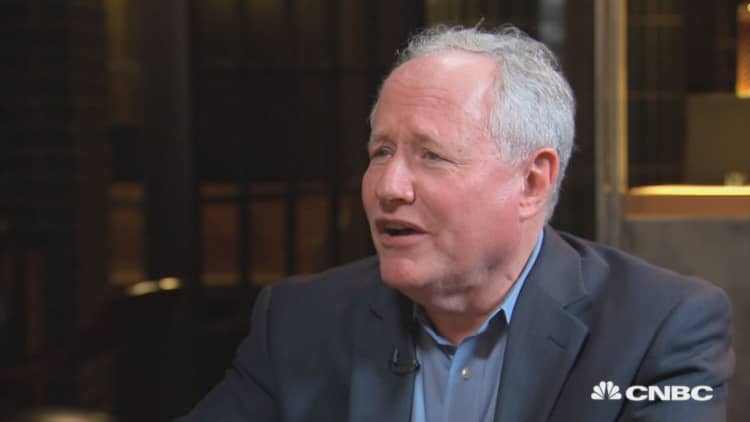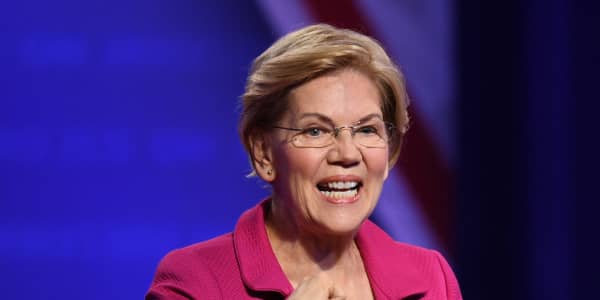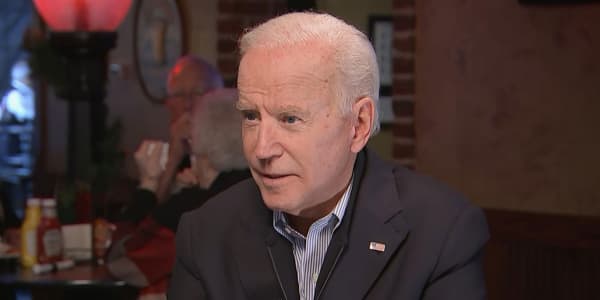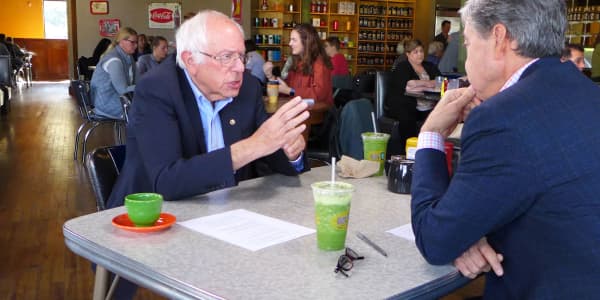
CNBC's John Harwood recently sat down with conservative pundit Bill Kristol to discuss a wide range of topics, including the rise and fall of one-time vice president candidate Sarah Palin, the proper role of government, the state of conservative media, and here, how he's creeped out by all the businesses that are "sucking up" to President Donald Trump.
What follows is an edited excerpt of their conversation:
Harwood: What would you advise economic conservatives today, especially in business, many of whom are thrilled with the idea that their taxes are being cut? What would you counsel them to say and be concerned about in Trumpism?
Kristol: In terms of businesses and others, this is a case where I've gotten, if anything, maybe more of a libertarian. Limited government is really important.
Why has the country done pretty well in surviving the Trump presidency so far? Because the president's limited. It's not Argentina. The dictator can't just destroy all these institutions. He can't take over businesses. He can't even take over the entire federal government because there are civil service rules and military regulations, and the Senate and the House. Whatever their lack of standing up to Trump, they still exist and have some authority. The courts obviously, federal and state government, civil society, businesses.
That's actually been a good reminder of why we believe in limited government in general, and limited federal government, a presidency that's restrained in all kinds of ways, the rule of law. So, I've become, if anything, more of a limited government, rule of law, constitutional-norms type of guy.
It's nice that their businesses got a tax cut and that the stock market's had a good year. But you really don't want to sacrifice what the founders put in place and people have labored to keep and improve for 200 and however many years, 40 years, because of one good year in the stock market.
Harwood: Do business leaders have a role in speaking out?
Kristol: Yes. Now it's hard to ask them, "Don't take this thing from the president, or the president wants to do a photo op at your company and say 'This company's staying here because of me.' It's hard to ask them not to do it.
But I thought it was sort of disgraceful when the tax cut gets passed and they immediately have these bonuses. If the tax cut's good policy, we'll see that it was good policy. And it's perfectly legitimate a year later for corporate leaders to say, 'One of the things that contributed to our excellent returns this year was a more favorable tax structure which allows us to compete around the world. And we're really thrilled that our workers have done better.'
Write $1,000 checks to people? Wasn't the whole point of the tax cut to free up money for investment? I mean, the government can just write checks to people. It doesn't have to go through a middleman, you know. Give 'em to everyone, not just the people who work for certain favored companies.
I found it slightly creepy — sucking up to Trump and to the Trump administration in hope of favors. This is the classic limited government, Hayek, et cetera, argument for why you don't want protectionism. You don't want government meddling and interfering everywhere, picking winners and picking companies.
So, the companies decide, we have to then cozy up to the federal government, and you do go towards a kind of Third World-type system, a kind of crony corporatism, as opposed to free markets with the emphasis on free. You're not going to have perfect free markets and all that.
But, I think Trump is an example of a certain kind of corporatism that's dangerous. We conservatives have spent more time worrying about the soft nanny state, welfare state kind of situation on the left. But there is a kind of corporatist — Mar-a-Lago. Really? People pay $200,000 and they get to hobnob with the president and stuff. It's not good for the country, I don't think.
Disclosure: CNBC owner Comcast is among the companies that announced $1,000 bonuses to employees after passage of the 2017 tax overhaul.





